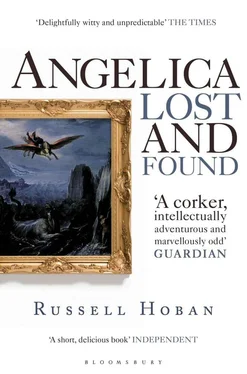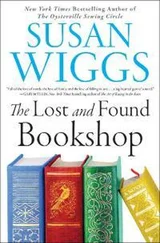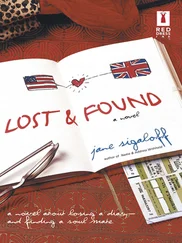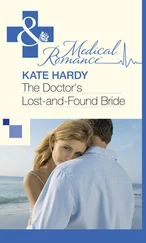‘So?’
‘To get to the essential you he’ll want you to take your clothes off.’
‘Isn’t that what they all want?’
‘I just thought you should be prepared.’
‘I’m always prepared, Ange. Do you have some kind of problem with this?’
‘Right. Sorry, I’ll back off.’
We were driving through the Richmond. The sea was on our left, apartment blocks on our right. There’s just one kind of urban coastal sunlight, whether it’s in San Francisco or Atlantic City or Civitavecchia. It’s flat, it’s hard, there’s no give to it. Colours recede into glare. Trees look stupefied. Buildings and road signs and billboards spring up like toadstools in the darkness of that light.
‘Have we stopped talking now?’ said Olivia.
‘No, I just don’t have anything to say at the moment.’
‘Can I ask you something?’
‘Go ahead.’
‘That weird guy with the smell who called himself Volatore, he really got to you, didn’t he?’
‘Yes, he did.’
‘Him and that painting that almost made us fall over, and that business with Orlando Furioso — the things he knew. He said he must have read it but he didn’t strike me as that much of a reader. You said you were going to tell me why that whole thing hit you so hard when you found out yourself.’
‘OK, Liv. If I told you I’ve had sex with an imaginary animal, what would your reaction be?’
‘An imaginary animal?’
‘That’s right.’
‘What kind of imaginary animal?’
‘A hippogriff.’
‘ A hippogriff !’
‘Named Volatore.’
‘ Volatore !’
‘Does repeating everything in italics help you to take it in?’
‘Yes. I’m trying to get my head around this imaginary business. Like, did you name your vibrator Volatore and build a whole fantasy around it?’
‘I haven’t got a vibrator. And I didn’t build a fantasy. He appeared at my window one evening. Emma Kirkby singing “Olimpia’s Lament” lifted him up to my apartment. Solid and real, in 3-D with a funky animal smell. One thing led to another and we had sex.’
‘Wasn’t he too big for you?’
‘He thought himself smaller.’
‘Ange, what kind of a relationship did you have with your father when you were growing up?’
‘Why do you ask?’
‘Might this Volatore be an imaginative displacement of sexual longings for your father?’
‘Jesus! Do they print that on the backs of cornflakes boxes now?’
‘Come on, Ange I’m only trying to help.’
‘Let’s leave shrinkable matters to our respective shrinks, OK? Can we talk about something else? Or maybe we could have a little music?’
Olivia had installed an up-to-the-minute radio and CD player in Lucille and there was a small rack of CDs fitted to the dashboard: Julian Bream; Peggy Lee; Teresa Berganza in Carmen , Alfred Deller singing Henry Purcell; Rossini’s La cenerentola , an opera not in my father’s collection nor my own. This was a 1994 recording with the orchestra and chorus of the Royal Opera House of Covent Garden, London, Jennifer Larmore as Cinderella.
‘What’s in the player now?’ I asked Olivia.
‘Act I of the one you’re looking at,’ she said. ‘My uncle Leon died and left me his collection. I was just starting to listen to it when I picked you up. It’s on track 3 now.’
I took the booklet out of the box and found track 3:
CENERENTOLA
(con fono flemmatico}
Una voltac’era un re
che a star solo annoio …
CINDERELLA
(singing to herself)
Once there was a king
who was bored with being all alone …
‘Oh!’ I said. Because those words all at once seemed to be talking to me. I pushed the start button and the voice of the poor daughter, motherless and discarded by her father, humble among the ashes, came to me pensive and slow. The song, with its little story of a lonely king who searched and searched until he found the pure and innocent girl he wanted — why did it make me cry? To me it was a Volatore song of heartbreak and hopeful longing, the essence of it not the comedic lightness that Rossini was famous for but something deep and sad that slipped past him. Was Volatore my lonely king? Of course I may be knitting with one needle, that certainly can’t be ruled out. Olivia tactfully made no comment and kept her eyes on the road.
At Ocean Beach we climbed the hill to Cliff House. Next to the bar there were stairs that went around back and there was the Giant Camera, a structure looking like a huge 35-mm camera lying on its back with its lens pointing at the sky.
‘It’s a camera obscura,’ said Olivia. ‘Leonardo da Vinci invented it. Vermeer and Canaletto used little ones, just a box with a lens in front and a ground-glass screen at the back.’
We waited with other obscurophiles and paid three dollars each as we came out of the sunlight into the camera body. We went through a door and into the dark chamber; before us on the round viewing table was a brilliant circle of brightness in which there were seals basking on a large rock by the dazzling blue Pacific. The camera operator told us what we were seeing as he rotated the lens to the marine headland and back to Cliff House.
We came blinking out into the sunlight.
‘OK, Olivia,’ I said, ‘we went into a dark chamber and saw the world around us very bright. Is that it?’
‘The clarity of the view was terrific!’ she insisted. ‘Maybe you have to go into a dark chamber to see the world clearly.’
I didn’t say anything. I had found the contrast between the darkness and the brightness aggravating, like the tongue going into the cavity of an aching tooth. Unreasonable of me but then I’m not an altogether reasonable person.
‘Now that we’ve had the metaphor,’ I said, ‘maybe we could get some lunch?’
We went to Sutro’s at the Cliff House where we had beer-braised black mussels with frites and Veuve Clicquot which made the world a little easier to take.
As we drove back to town the sky was not yet dark but the street lights were on and the lights in the houses. That time of day always brings an ache to my throat. I feel that all those, now gone, who have known this gentle goodbye from the day that is passing, never to return, are seeing it through my eyes. Volatore also seeing it through my eyes. ‘ “Look thy last on all things lovely, every hour …” ’ I sang under my breath, like Cinderella crouching in the ashes.
Olivia notices everything.
‘I think you need to pull yourself together, Angie,’ she said. ‘Maybe you just need to get laid. Didn’t you have something going with Clancy?’
‘Been there, done that,’ I said. ‘It didn’t work for me.’
‘OK, maybe Clancy didn’t float your boat. But this Volatore shit is going to drive you crazy if you don’t let go of it.’
‘You’re right, Liv — I’ll try to do better.’
When she dropped me off I stepped wearily into the bleakness of the street lamps, the shadows and the mica sparkles on the pavement. In the past, easing through those lamps and shadows and sparkles, I used to wish I had a cat waiting for me. Now Irene was waiting. She’d rub against my leg and purr, then she’d keep me company and dab at the foam while I had a hot bath. There’d be a large Jack Daniel’s beside the tub, and on the Bose, warm and golden and shadowy, the strings of Monsieur de Sainte-Colombe.
Chapter 41. Passing, Never to Return
‘Passing, never to return!’ These words have come into my mind like some melancholy refrain that refuses to go away. Passing, passing, never to return! What? Everything? Angelica and Volatore both? Shall we cease to be imagined? Shall we pass like the fading of the day, like breath upon a mirror, suddenly gone?
Читать дальше












